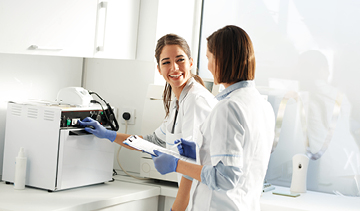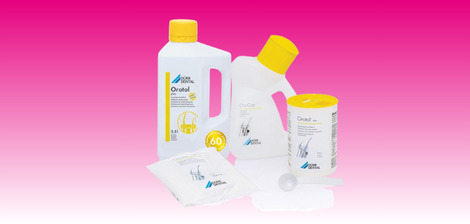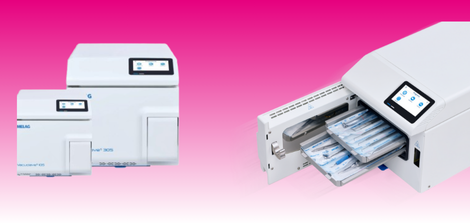It’s not only vital to invest in the right dental equipment to keep your practice running smoothly and profitably, it’s also just as important to keep it maintained and in good working order.
In fact, poor maintenance is the most common cause of costly equipment faults.
By taking care of your dental equipment, following manufacturer guidelines, scheduling routine maintenance and cleaning, you’ll extend its usable life and prevent costly repairs, or bills for replacement that have been caused by neglect.
You’ll also avoid having to close while your equipment is repaired or replaced – a practice closure costs an average of £2,000 a day in lost revenue.
Tip #1 read manufacturer recommendations
Firstly, it’s important to check manufacturer recommendations about cleaning and maintenance as well as clarify if any warranty requires you to use approved suppliers for maintenance or repairs.
Armed with this knowledge you’ll be able to plan regular services and introduce the right cleaning protocols.
Tip #2 protect your investment with regular health checks
Set up a service contract, which will give you a point of contact for support should anything happen to your equipment. It will ensure you can respond quickly and limit any practice down time.
By taking this step now – rather than in an emergency – you’ll save money and have peace of mind.
A maintenance matrix is a good idea for dental practices to have as it plans out all the servicing needs of each piece of equipment in one place.
Tip #3 know your warrantee
It’s important to know what you are and are not covered for when it comes to your manufacturer warrantee and have this information to hand should you need it.
It’s also worth considering extending the manufacturer warrantee so your equipment is protected for its usable life, which is generally much longer than the warrantee provided at point of sale.
Tip #4 don’t put off servicing and repairs
We’re often called out to repair equipment that has been running with a fault for a while. If you hear, see or feel something about the equipment that isn’t quite right flag it up immediately – by acting quickly you could prevent a small fault turning into a major one.
Tip #5 get into a good routine
Establish daily, weekly and monthly cleaning routines and stick to them. They will ensure you’re doing all you can to keep your equipment in good working order.
Tip #6 ask the experts
You’re a dentist, not an equipment specialist, so it makes sense to ask the experts for help and advice.
We’re more than happy to help you get the right equipment, warrantee and servicing routine in place for your practice.
And when you know your equipment is properly maintained and serviced, you’ll have peace of mind and can concentrate on delivering great care to your patients.



